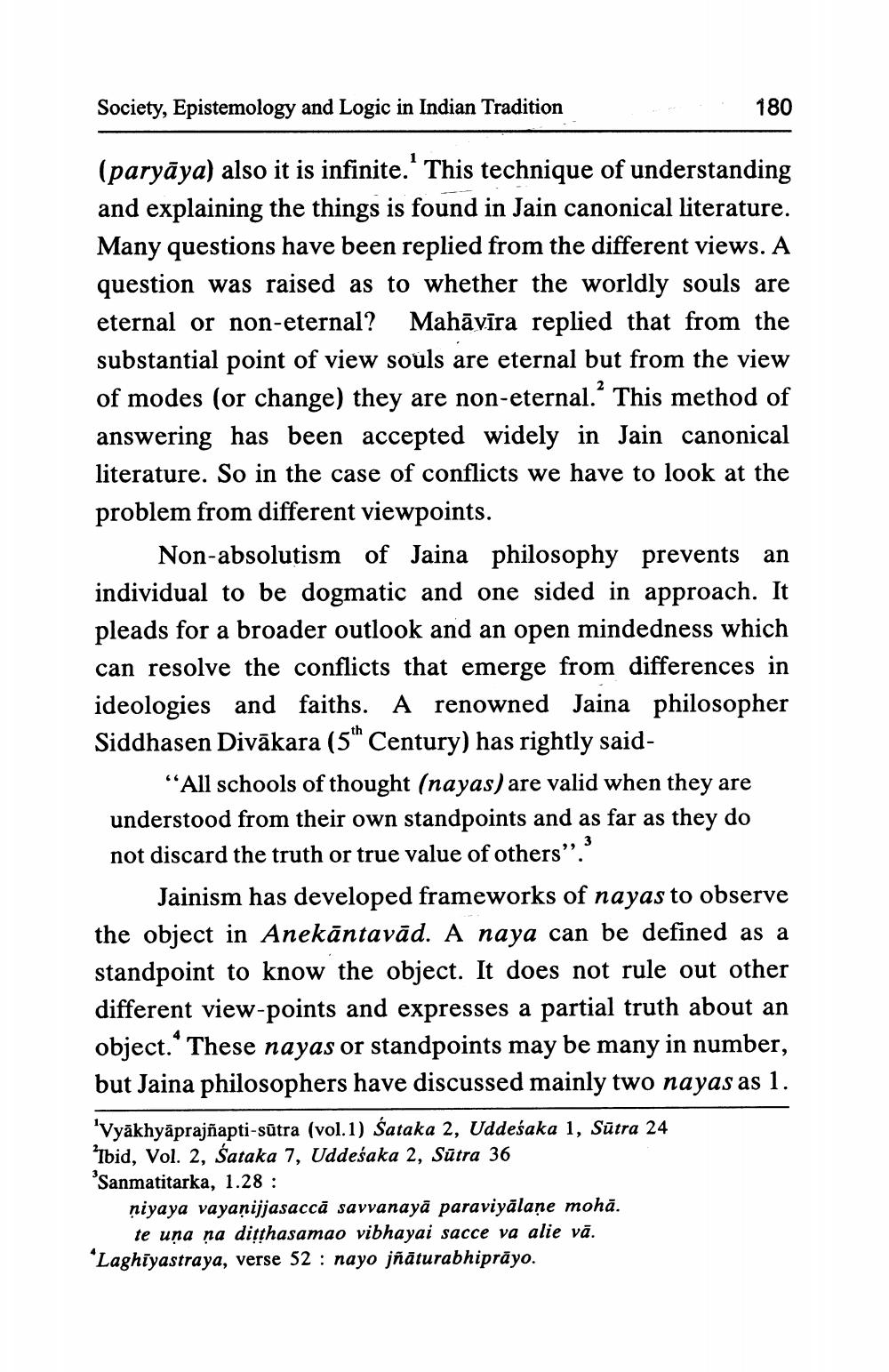________________
Society, Epistemology and Logic in Indian Tradition
(paryāya) also it is infinite.' This technique of understanding and explaining the things is found in Jain canonical literature. Many questions have been replied from the different views. A question was raised as to whether the worldly souls are eternal or non-eternal? Mahāvīra replied that from the substantial point of view souls are eternal but from the view of modes (or change) they are non-eternal. This method of answering has been accepted widely in Jain canonical literature. So in the case of conflicts we have to look at the problem from different viewpoints.
Non-absolutism of Jaina philosophy prevents an individual to be dogmatic and one sided in approach. It pleads for a broader outlook and an open mindedness which can resolve the conflicts that emerge from differences in ideologies and faiths. A renowned Jaina philosopher Siddhasen Divakara (5th Century) has rightly said
"All schools of thought (nayas) are valid when they are understood from their own standpoints and as far as they do not discard the truth or true value of others"."
3
180
Jainism has developed frameworks of nayas to observe the object in Anekāntavād. A naya can be defined as a standpoint to know the object. It does not rule out other different view-points and expresses a partial truth about an object. These nayas or standpoints may be many in number, but Jaina philosophers have discussed mainly two nayas as 1. 'Vyakhyāprajñapti-sūtra (vol. 1) Śataka 2, Uddeśaka 1, Sūtra 24 'Ibid, Vol. 2, Śataka 7, Uddeśaka 2, Sūtra 36 'Sanmatitarka, 1.28:
niyaya vayaṇijjasaccā savvanayā paraviyālaṇe mohā. te una na ditṭhasamao vibhayai sacce va alie vā. *Laghiyastraya, verse 52: nayo jñāturabhiprāyo.




